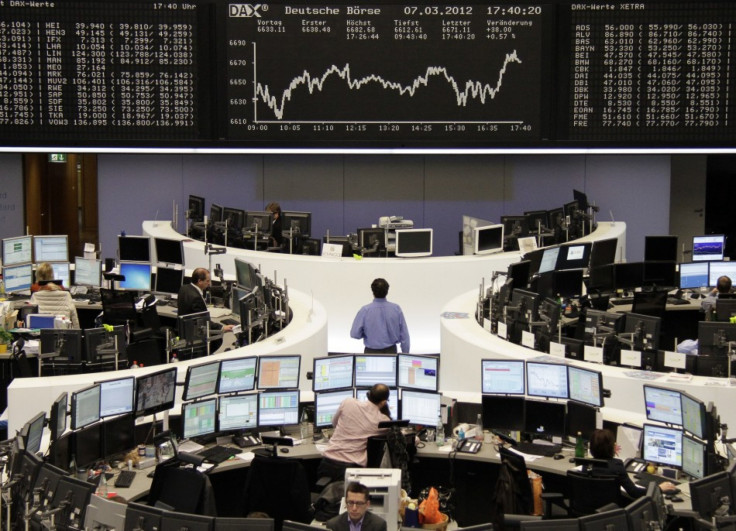Europe's Sovereigns Rally, Retracing Monday's Losses, In Spite of Continued Econ Weakness

The price of European governments' debt obligations rose on strong trading Tuesday following a sharp selloff the prior day, lowering the borrowing costs of those countries and giving some confidence to equity markets.
Yields on benchmark French and Dutch bonds slumped early in the day and continued dropping after U.S. markets opened, falling to 3.038 and 2.344 percent, respectively. Yields move in the opposite direction of price, so a falling yield corresponds with a rising price.
In a day where safe haven German bonds rose, the spread between French and Dutch bonds and equivalent German securities tightened, a sign of decreasing volatility. On Monday that spread had risen to levels not seen since 2009.
The decrease in yields was especially fortuitous for the government of the Netherlands, which auctioned $2.63 billion in debt Tuesday morning.
The Dutch auction went pretty well, an unnamed bond trader told The Wall Street Journal. It dragged peripheral bonds back into positive territory.
Peripheral bonds refers to bonds from countries on the southern rim of the euro zone. They are backed by the faith and credit in Europe's most fiscally ransacked countries, but were having a rally day: Spanish 10-year bonds dropped more than 15 basis points from Monday's highs to recently yield 5.879 percent; Portuguese bonds, which had paid close to 13 percent yield last at one point last week, were at 11.693 percent. Italian bonds, for which there is a huge secondary market, had a monster day with yields falling from 5.753 percent to 5.681 percent.
Those tightening spreads greatly benefited Continental equity markets. The Stoxx Europe 50 Index of blue-chip euro zone equities was up 0.81 percent for the day, reversing some of the steep losses seen yesterday.
The day's news, however, did not amount to a change in Europe's paradigm, various analysts noted, as the economies of the region seem stuck in a recessionary cycle driven by recent austerity measures and made worse by decreasing confidence in governments.
Political obstacles and economic weakness are infecting an ever-greater share of the euro area, David Rosenberg, chief economist and strategist at Gluskin Sheff and Associates, wrote in his monthly note to clients, later adding: The recession in Europe is deepening.
© Copyright IBTimes 2024. All rights reserved.




















